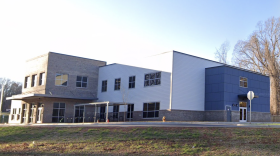Charter schools have been around in North Carolina for about a decade and a half, and for most of that time, the relationship between charters and traditional public schools has alternated between frosty and hostile.
“One of the fundamental reasons for introducing charter schools is to put an element of competition into the education arena and let parents make the choice,” says Baker Mitchell. Mitchell opened his first charter school in 2000 outside of Wilmington and a second six years later; he has a third opening this fall.
Mitchell cites competition and the monopoly held by traditional public schools and the State Board of Education in his call for a separate Charter School Board. Senate Bill 337, currently making its way through the General Assembly, would create such a board.
“When you have two governmental agencies that are in the same area, competing for people to provide the same service, one should not have regulatory over the other,” says Mitchell.
A new Charter School Board would have full authority to open, supervise, and – if necessary - close charter schools. Any decisions it made could be overturned by the State Board of Education, but only by a 3/4ths majority.
It seems like just the sort of bill that would sail through the Republican-controlled Legislature. Republicans have long sought to create what they call “choice” within the public school system. One of their first acts, when they gained control of the General Assembly two years ago, was to lift the cap of 100 charter schools in the state.
But while a charter school board seems like a natural next step to some Republicans, others see something else.
“I don’t like train wrecks,” says State Board of Education Chairman Bill Cobey. “And I see a train wreck coming.””
Cobey’s Republican bona fides are impeccable. He’s been a U.S. Congressman; chair of the state Republican Party; state secretary of both Transportation and the Department of Environment, Health and Natural Resources; a candidate for Governor; and a board member at the Jesse Helms Center.
And while he’s been the Chair of the State Board of Education for less than two months, he knows when he sees something he doesn’t like.
“I see potential conflicts of interest because the people who operate them and are in that business and going to want to be on that board and when I read the code of ethics, I think that’s a problem,” says Cobey.
The North Carolina Constitution gives specific authority to the State Board of Education to run public schools. Cobey says the legislation to create a separate charter school board is therefore unconstitutional. Mitchell, the owner of three charter schools, disagrees, and he says any conflict-of-interest issues are covered by existing regulations.
“You always have conflicts-of-interests on any board,” Mitchell says. “A medical board will have doctors on it, and their practices will be affected by their decisions. The potential for conflict-of-interest will be there for any board that you have.”
Both men say they support charter schools. And other charter advocates – especially those from out-of-state - are keeping a close eye on both the legislation and the makeup of whatever board ends up overseeing charter schools.
"It’s very important that the commission not be perceived as being pro-charter or anti-charter,” says Greg Richmond, the President and C.E.O. of the National Association of Charter School Authorizers. “The people on that body have to be first-rate professionals, objective, have high standards, and be focused on doing what’s right for kids and taxpayers.”
Coming to a consensus on what’s right for kids and taxpayers is not an easy task, especially in a state where the fight over charter schools has been a bare-knuckle brawl for so long. But in some districts across the state, charter schools and traditional public schools are talking about a more cooperative existence.
“One size doesn’t fit all so we’ve got to look at the whole spectrum of education and make everything as strong as we can,” says Cobey.
The bill that would create a separate Charter School Board has passed the senate, and is expected to be taken up by the House soon. Governor Pat McCrory – the man who appointed Cobey - would have to sign it for it to become law.







